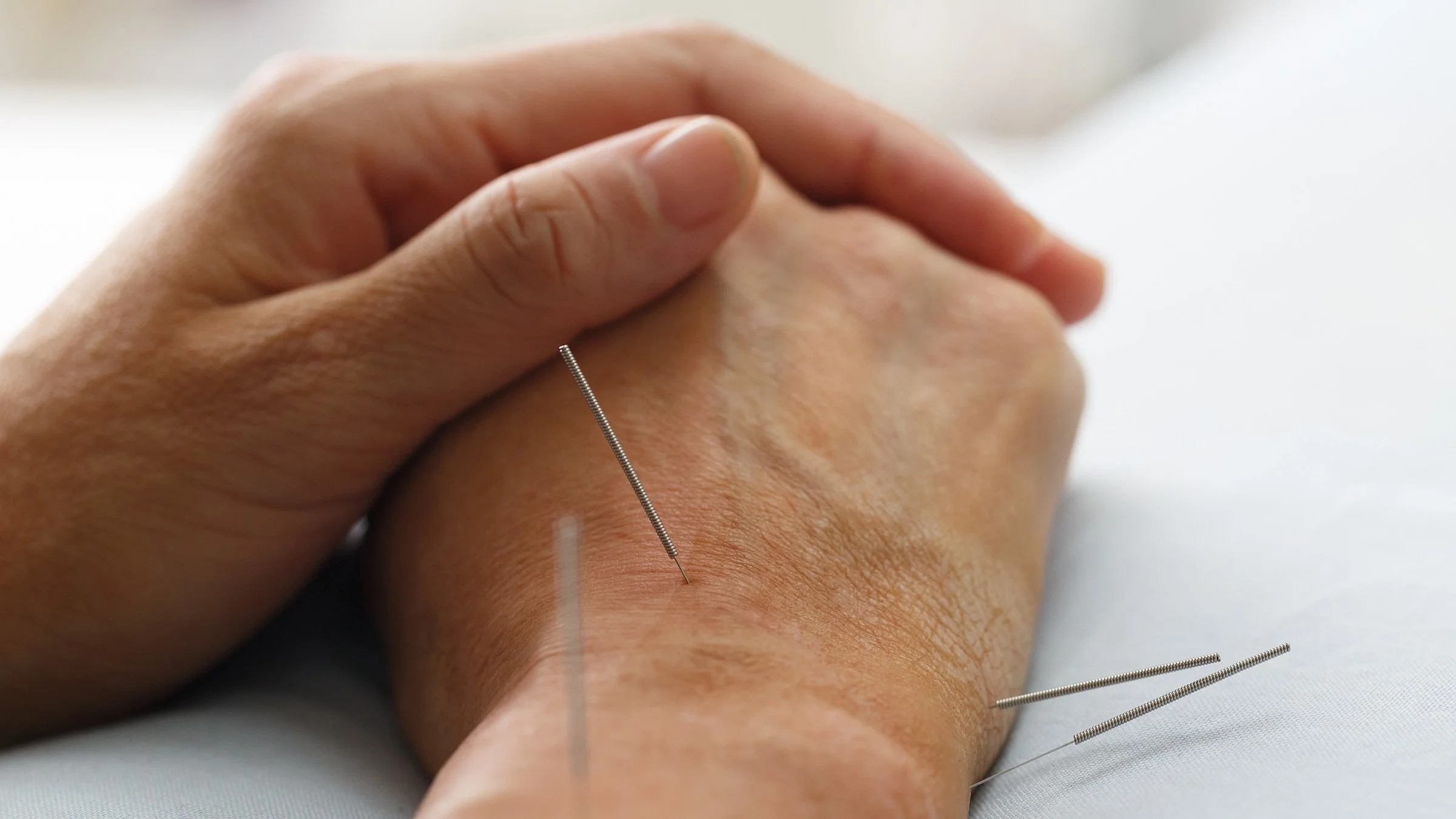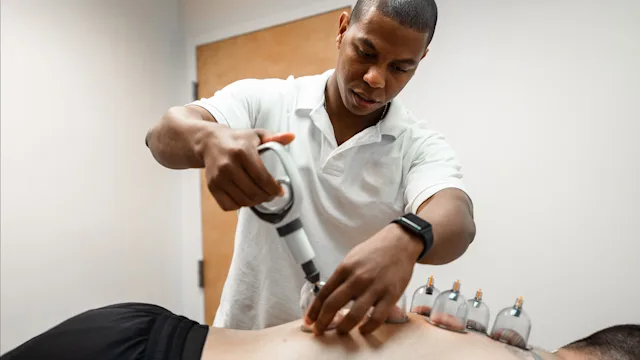Key takeaways:
Acupuncture is a technique based in traditional Chinese medicine. During acupuncture, a practitioner inserts tiny, thin needles into your skin at specific points on your body to help manage your pain.
Medicare Part B may cover acupuncture for chronic lower back pain, but coverage is limited to specific conditions and provider qualifications.
To increase your chances of qualifying for coverage, it’s important to receive treatment from a qualified practitioner who meets Medicare’s credentialing requirements.
Chronic lower back pain reportedly affects 22% to 48% of adults in the U.S. If you’re one of them and haven’t gotten relief from conventional medical treatments, you may be considering alternative therapies. Acupuncture is one of the most popular options. In fact, the American College of Physicians has recommended acupuncture as one of the first steps for people looking to reduce chronic lower back pain and improve their quality of life.
Only some types of insurance plans cover acupuncture. Fortunately, Medicare Part B is now one of them, covering a limited number of sessions specifically to treat lower back pain. If you’re enrolled in Medicare, here are some important points you should know about qualifying for acupuncture coverage.
What is acupuncture?
Acupuncture is a type of alternative therapy rooted in traditional Chinese medicine. It involves inserting tiny, thin needles into specific points on the body to encourage the central nervous system to release chemicals that help ease pain. The word “acupuncture” literally means “needle penetration.”
Search and compare options
Studies show that acupuncture is generally a safe and effective treatment for most people. According to the National Institutes of Health, it may help people manage:
Back pain
Neck pain
Knee pain from osteoarthritis
Cancer-related symptoms and side effects, like fatigue and vomiting
Does Medicare cover acupuncture?
Medicare typically does not cover acupuncture or a similar practice known as dry needling. However, there is one exception: Medicare Part B covers acupuncture for chronic lower back pain under specific conditions.
To qualify for coverage, the acupuncture treatments must:
Be for chronic lower back pain that has lasted 12 weeks or longer
Not be for pain associated with a known underlying condition such as cancer, inflammatory disease, or infection
Be provided by a qualified healthcare professional — such as a physician, nurse practitioner, or other advanced practice provider — who has a master’s, doctorate, or certificate in acupuncture or herbal medicine from a program accredited by the Accreditation Commission for Acupuncture and Herbal Medicine (ACAHM) and holds a valid, unrestricted state license to practice acupuncture
The Centers for Medicare & Medicaid Services (CMS) announced this change in policy in January 2020. The agency stated that the move was part of its efforts to address the opioid crisis, which has been linked to doctors overprescribing opioids to patients in pain.
How much does acupuncture cost? Without insurance, you may pay $100 or more per session. However, these factors will affect your total costs for acupuncture.
Does acupuncture really work? Here are some pros and cons to consider.
Can acupuncture help you lose weight? Here’s what the research says about acupuncture and weight loss.
Medicare Part B now covers up to 12 acupuncture sessions in 90 days. If your condition improves, Medicare will approve 8 more visits, for a maximum of 20 treatments per year. If your condition worsens, however, Medicare won’t approve or cover any more sessions.
What does Medicare define as chronic back pain?
According to the CMS, lower back pain is considered chronic if it lasts 12 weeks or more and has no known cause. This definition is used to help determine whether acupuncture is covered under Medicare Part B for individual enrollees.
How much does Medicare pay for acupuncture?
Medicare Part B covers 80% of the Medicare-approved amount for each acupuncture session after you’ve met your Part B deductible. You pay the remaining 20%, directly out of pocket or through a Medigap policy.
Read more like this
Explore these related articles, suggested for readers like you.
These coverage guidelines also apply to private Medicare Advantage (Part C) plans. In general, Medicare Advantage plans are required to provide all the benefits original Medicare (Part A and Part B) offers.
Some Medicare Advantage plans offer expanded acupuncture coverage. For example, there are UnitedHealthcare Medicare Advantage plans that cover acupuncture for pain relief and nausea. And CareFirst BlueCross BlueShield includes coverage for routine acupuncture treatments in its enhanced Medicare Advantage plan.
Every Medicare Advantage plan is different. Your insurance company or your State Health Insurance Assistance Program (SHIP) can help you sort out the details of your plan.
Why doesn’t Medicare cover acupuncture for other conditions?
Some studies suggest that acupuncture may help with conditions like migraines and other types of musculoskeletal pain. But Medicare only covers treatments that have strong evidence showing they are both safe and effective for a specific health condition.
For instance, Medicare officials considered covering acupuncture for osteoarthritis but concluded the evidence was insufficient. The CMS ruled that, for osteoarthritis, the technique was “not reasonable and necessary,” as government regulations require.
How much does acupuncture cost without insurance?
If you’re exploring acupuncture for anything other than chronic lower back pain, it likely won’t be covered by Medicare or most other insurance plans. This means you may have to pay out of pocket.
The cost can vary based on a few different factors, including where you live, the experience level of your acupuncturist, and how the clinic structures its pricing. For example, acupuncture in a major city may cost more than in a smaller town. Your first session might also cost more than later sessions because it typically includes a health assessment in addition to treatment.
A 2019 study found that the average cost of an initial acupuncture visit was about $112, while follow-up appointments averaged around $80. You may be able to lower these costs by negotiating a package price for multiple sessions.
How can you find an acupuncture clinic near you that accepts Medicare?
If you have Medicare and you want to find an acupuncture clinic that accepts your insurance, follow these steps:
Go to www.medicare.gov.
Find “Providers & Services” on the main page and click on “Find care providers.”
Find “Doctors and clinicians” on the left toolbar and enter your location. Then, enter “acupuncture” or related keywords in the search box.
Review the list of acupuncture clinics in your area and contact them directly to confirm they accept Medicare.
You can also contact Medicare directly at 1-800-633-4227 to get assistance finding acupuncture clinics near you that accept your insurance.
The bottom line
Medicare covers acupuncture only as a treatment for chronic lower back pain. And the maximum number of sessions that can be covered in one year is 20. To ensure your treatment will be paid for, find a healthcare professional with a master’s or doctoral degree in acupuncture. Otherwise, Medicare may deny you coverage for the sessions.

Why trust our experts?



References
Accreditation Commission for Acupuncture and Herbal Medicine. (2024). Program naming policy.
Candon, M., et al. (2022). Trends in insurance coverage for acupuncture, 2010-2019. JAMA Network Open.
CareFirst BlueCross BlueShield. (2024). 2025 summary of benefits: CareFirst BlueCross BlueShield Advantage Complete (PPO).
CareFirst BlueCross BlueShield. (2024). Understanding your Medicare Advantage plan options.
Centers for Medicare & Medicaid Services. (2020). Acupuncture for chronic low back pain.
Centers for Medicare & Medicaid Services. (2020). CMS finalizes decision to cover acupuncture for chronic low back pain for Medicare beneficiaries.
Fan, A. Y., et al. (2019). Acupuncture price in forty-one metropolitan regions in the United States: An out-of-pocket cost analysis based on OkCopay.com. Journal of Integrative Medicine.
Johns Hopkins Medicine. (n.d.). Acupuncture.
Liou, K. T., et al. (2020). Medicare coverage of acupuncture for chronic low back pain: Does it move the needle on the opioid crisis? Journal of General Internal Medicine.
Medicare.gov. (n.d.). Acupuncture.
National Center for Complementary and Integrative Health. (2016). Osteoarthritis: In depth. National Institutes of Health.
National Center for Complementary and Integrative Health. (2019). Seasonal allergies at a glance. National Institutes of Health.
National Center for Complementary and Integrative Health. (2021). Cancer and complementary health approaches: What you need to know. National Institutes of Health.
National Center for Complementary and Integrative Health. (2022). Acupuncture: Effectiveness and safety. National Institutes of Health.
Powell, D., et al. (2020). How increasing medical access to opioids contributes to the opioid epidemic: Evidence from Medicare Part D. Journal of Health Economics.
Qaseem, A., et al. (2017). Noninvasive treatments for acute, subacute, and chronic low back pain: A clinical practice guideline from the American College of Physicians. Annals of Internal Medicine.
UnitedHealthcare. (2025). UnitedHealthcare Medicare Advantage chiropractic and acupuncture coverage.
U.S. Social Security Administration. (n.d.). Exclusions from coverage and Medicare as secondary payer.
Van Hal, M., et al. (2023). Acupuncture. StatPearls.
Wild, B., et al. (2020). Acupuncture in persons with an increased stress level—Results from a randomized-controlled pilot trial. PloS One.
Zhao, L., et al. (2017). The long-term effect of acupuncture for migraine prophylaxis: A randomized clinical trial. JAMA Internal Medicine.


















